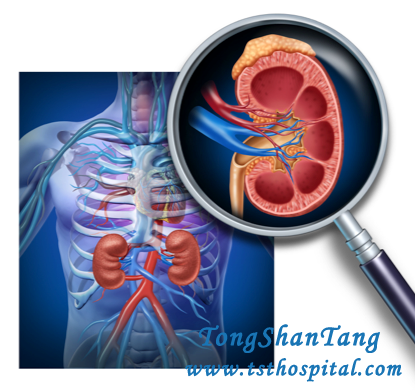 Kidney transplant is a better way for kidney failure patients to promote living quality, but it also has some disadvantages, one of which is that the transplanted kidney can only survive several years. What factors will affect long-term survival rate of kidney transplant? Read on to learn more information.
Kidney transplant is a better way for kidney failure patients to promote living quality, but it also has some disadvantages, one of which is that the transplanted kidney can only survive several years. What factors will affect long-term survival rate of kidney transplant? Read on to learn more information.
(1) Acute rejection of transplanted kidneys will cause a small part of the kidneys to lose function due to the ineffectiveness of acute rejection treatment, while the other part is effective after anti-rejection treatment. However, if acute rejection occurs repeatedly (for example, more than two times), the follow-up results show that the incidence of chronic rejection will increase significantly in the future. Once chronic rejection occurs, it will bring great difficulties to the treatment and shorten the survival time of the graft.
(2) Severe infections are common pulmonary infections, such as those caused by drug-resistant bacteria, tuberculosis, fungi or mixed pathogens, and cytomegalovirus and herpes virus infections, which will seriously threaten the lives of patients. Infection occurs partly because transplant patients have too much and too close contact with the source of infection, or because of overuse of immunosuppressive agents, or because both conditions exist at the same time. The prognosis of renal transplant patients will be directly affected by their awareness of infection, timely treatment or proper treatment.
(3) Liver function impairment after kidney transplantation. Abnormal liver function or liver function impairment results in kidney transplantation failure and endangering the lives of patients. In recent years, transplantation clinicians are attaching great importance to it. There are not a few hepatitis B and C virus infected patients in our country. We should make full preparations for kidney transplantation of these patients. There should be a set of schemes in advance, including: the choice of cyclosporine A or FK506 immunosuppressant combination, dosage application, how to deal with abnormal liver function after transplantation, which drugs should be chosen first, which drugs should be stopped, and how to take into account the problem of kidney transplantation. These are all very demanding.
(4) Renal allograft dysfunction occurs one year after kidney transplantation due to various reasons. Some patients are completely reversible and should be carefully identified and excluded.
Common causes are: (1) ureteral obstruction factor; (2) vascular stenosis factor, such as anastomotic stenosis factor; (3) mismatched size of transplanted kidney; (4) nephrotoxicity of cyclosporine A or tacrolimus; (5) BK virus infection; and (5) antibodies against kidney produced in vivo.
What factors will affect long-term survival rate of kidney transplant? For more information on kidney transplant, please leave a message below or contact online doctor.
- Email:tsthospital@hotmail.com
- WhatsApp/WeChat/Phone Number:+86 15512139310
- Kidney Treatment Group:
- https://chat.whatsapp.com/2ZCOvebPJdr9QGkyfiqxDz
- Tag: Kidney Failure Treatment Kidney Transplant
- previous:Top 10 Tips for Patients After Kidney Transplant
- next:What Should We Do in Case of Elevated Blood Sugar After Kidney Transplant

